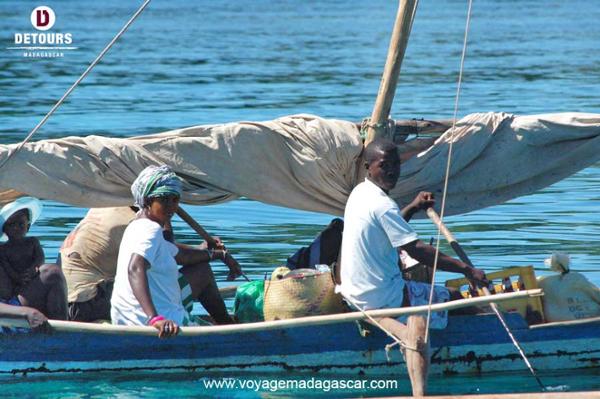
What it means to be Malagasy today
Being Malagasy today is full of paradoxes: people struggling daily to find food while others purchase the latest off-road vehicles, a rich country in natural resources but with one of the lowest GDPs per capita in the world. What does it truly mean to be Malagasy today? What would a Malagasy say if asked to describe their people and their country?
Living in the world’s 4th poorest country
A constantly declining economy
Madagascar is the only country in the world that has continued to grow poorer since gaining independence in 1960. Over nearly 60 years, the Malagasy economy has remained in decline, and the population increasingly struggles, despite the country experiencing neither war nor significant natural disasters. The Development, Institutions, and Globalization research center (DIAL) attributes this situation to the predatory role of elites, the taboo surrounding violence, and the weakness of civil society. In 2018, the International Monetary Fund (IMF) ranked Madagascar as the world’s 4th poorest country, with a GDP per capita of $424.
A governance that impoverishes the Nation
Immensely wealthy elites rarely help the less fortunate build a better future. Those in power focus their energy on amassing more wealth and power. Development programs and various forms of aid are almost entirely funded by foreign donors (IMF, European Union, governments, etc.), while the Malagasy state is never held to any fiscal constraints. The Malagasy finance law is merely a tool to maximize exploitation of state coffers. Public funds are spent recklessly, and salaries and allowances in some state entities are outrageous.
A people who suffer
Due to the sanctity of the state, the taboo on violence, fear, and other factors, Malagasy people rarely express their disagreements. Every coup d’état to date has been orchestrated by a handful of individuals, with or without the indirect support of the military. Strikes are met with increasingly severe repression. The populace debates among themselves and directs their anger at the wrong people. Some place their hopes in ancestors, religious leaders, and God to improve their situations, and many religious leaders exploit this dependence.
Cancers that need healing
According to Transparency International, Madagascar ranks 155th in corruption, though the reality may be even worse, with all sectors and institutions affected by this slow-killing cancer: law enforcement, tax authorities, customs, public services, education, mining, forestry, justice, and more.
Poverty also affects the mindset of the Malagasy people:
- Jealousy towards neighbors’ success, despite the concept of fihavanana
- Insufficient mutual aid
- Disregard for law and order.
- Thinking small instead of dreaming big.

Living in an incredibly rich country
Abundant and incredible natural resources
Madagascar, the world’s 5th largest island (587,295 km²), boasts 4,828 km of coastline, stunning beaches, idyllic islands, and extraordinary marine biodiversity. The inland regions are vast and arable, featuring numerous lakes and rivers suitable for agriculture, livestock farming, and fishing. Its forests and natural wonders continue to captivate and attract scientists globally, especially due to the endemic flora and fauna. The country’s tourism potential is exceptional, bolstered by a welcoming population. Additionally, Madagascar possesses incredible mineral and petroleum resources.
An economy that could suffice
Father Pedro Opeka, a prominent humanitarian figure in the country, voiced his frustration on French television in 2017. He has spent nearly 50 years fighting poverty in Madagascar and expressed his weariness with the magnitude of the problem. He criticized the lack of mutual aid among Malagasy people. If wealthier individuals supported projects for the less fortunate and the state managed finances responsibly, the resulting economic gains would be immense.
A strong sense of national identity
One of Madagascar’s greatest strengths compared to other African countries is its unified national identity. The population shares the same values, is united by a common official language (Malagasy), and identifies as Malagasy regardless of regional origins—north, south, west, east, or central. The country is full of paradoxes and challenges, but only the Malagasy people hold the answers and solutions.
The revolution of Malagasy youth
Today, young Malagasy people are increasingly driving change. Politically, they are becoming more active in media: radio, television, print, and Facebook. Entrepreneurs are also making a difference with innovative and promising projects:
- Ecology Bag (paper bags)
- Fiombonana (dairy products)
- Flore Aroma (organic products made from essential oils)
- Sayna (internet skills training)
These under-30 entrepreneurs have received awards such as Africa’s Best Startupper, Best "Development-Growth" Company in the Indian Ocean, and more. Change is underway…
